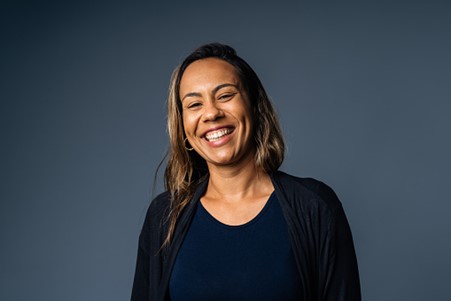
Royal College Routes to GMC Registration
05 September, 2023There are a number of Royal College organisations in the UK that offer a series of examinations proving competence and excellence in niche fields of...
There are a number of Royal College organisations in the UK that offer a series of examinations proving competence and excellence in niche fields of medicine. For UK doctors, the Royal College examinations are the gateways to specialist training and CCT. For international doctors they also offer a route to GMC Registration which proves the level of skill equivalent to a registrar doctor in the NHS.
There are several international equivalent qualifications (such as EDAIC and EDIC) which also offers similar routes to GMC Registration and senior posts in the NHS. In this video we uncover the routes you can take, whether or not you should go for PLAB instead of the Royal Colleges and how to apply for the GMC once you have you've completed your Royal College qualifications.
Chapters
- 00:00 - Introduction
- 00:40 - Royal College Examinations
- 02:08 - PLAB VS Royal College
- 03:26 - Royal College Routes to GMC Registration
- 05:16 - Summary
Useful Links
Postgraduate Qualifications accepted by the GMC
Overseas Primary Qualifications accepted by the GMC
Transcript
00:08 So there's three routes of entry to
00:10 the GMC register for IMG doctors.
00:12 You can either sit PLAB, or you can
00:15 sit a Royal College or postgraduate qualification, or
00:18 you can come through the MTI scheme.
00:20 In this video, we're going to talk to you
00:22 about the postgraduate or Royal College examination route.
00:26 Now, this route is aimed at more senior doctors.
00:29 So if you're watching this and you're an ST3 level doctor,
00:32 a registrar doctor, maybe even
00:34 a consultant or a specialist overseas, then this is
00:36 going to be the route for you.
00:45 registration is actually the PLAB examinations.
00:48 But the PLAB exams are more suited to a doctor looking
00:51 to come in at an F2 or ST1/2 Level.
00:54 So the Royal College option or the postgraduate
00:57 qualification option offers something for more senior doctors.
01:00 So if you've specialised for a few years in your
01:03 particular niche, if you specialise as a medicine doctor, for
01:06 example, it's probably going to be a much more applicable
01:09 exam for you to study for, prepare for, pay for,
01:12 to come in through the MRCP route than it would
01:15 be to come through the PLAB route.
01:17 And that's why the GMC used that, to recognise
01:20 that doctors have the clinical knowledge and skills of
01:23 a senior or specialist or registrar, a trainee level
01:26 doctor, and they grant access using those examinations.
01:30 It's important to distinguish that the UK has lots
01:34 of Royal Colleges which are UK centric, but there
01:38 are also a load of qualifications that are recognised
01:41 as equivalent to those from overseas as well.
01:45 So we'll put a full list up underneath this video.
01:47 But one or two to look out for are
01:50 exams like EDAC and EDIC for Anesthesiologists and ICU
01:55 doctors, which could be a lot more accessible if
01:58 you're looking to study for them overseas, rather than
02:00 having to come to the UK, where FRCA is
02:03 slightly less accessible for overseas applicants.
02:11 If you're on the fence between sitting PLAB and
02:13 the Royal College exams, I think it's important to
02:15 note that they are probably both equally as accessible.
02:19 It just depends on the level of doctor that you are.
02:21 So if you're sitting PLAB, it's going to be two parts.
02:24 You can have a written part, you're going to
02:25 have a structured OSCE in person part as well.
02:29 Most of the Royal Colleges follow a very, very
02:31 similar path, so most of them have either an
02:34 MCQs multiple choice questions at the beginning or short
02:37 answer questions, maybe in two parts, and then a
02:40 structured OSCE in person exam.
02:43 Most of the written exams you're going to
02:45 be able to access around the world.
02:47 Most of the OSCE exams, you're going to have to
02:49 travel to access a test centre for those, so there
02:52 really isn't too much to choose between them.
02:54 The Royal College exams tend to be a little bit
02:56 more expensive, I guess, owing to the fact that they
02:59 are more prestigious, aimed at more senior doctors.
03:02 So there's a slight factor to play there.
03:04 But, of course, that means that you're going to have access
03:06 to a higher paying job when you enter the NHS, so
03:10 you've got to weigh up the pros and cons of both.
03:13 But on the whole, I would advise, if you're
03:16 a more junior doctor, go for the PLAB route.
03:18 If you're a more senior doctor, go for
03:19 the royal college or postgraduate qualification route.
03:28 So once you've checked in the list below that
03:30 your postgraduate qualification or Royal College qualification is recognised,
03:35 or you've sat each part of the exam and
03:37 completed them, you're probably wondering which other things you're
03:41 going to need for the GMC itself.
03:44 Now, the big one, the bit that people struggle
03:46 with sometimes, is passing their IELTS or OET.
03:50 So you're going to need to accompany your
03:52 postgraduate qualification or your Royal College qualification with
03:55 a proof of English language skills.
03:58 This might seem slightly counterintuitive because the exams
04:00 that you've just prepared for, of course, are
04:02 sat and taught in English, but you do
04:05 need to accompany it alongside it as well.
04:07 So you're either going to need to go for
04:09 IELTS, which tests kind of general level of English,
04:13 with a band of 7and 7.5 overall.
04:17 So 7 in each element and 7.5 overall.
04:20 Or you can come through the OET route,
04:22 which requires grades of B as a minimum
04:26 in each element, reading, writing, speaking and listening.
04:30 The usual path is for people to
04:32 choose OET because it tests occupational English.
04:36 So you're given English assessments based on medical language
04:42 and medical knowledge, so it's a bit more accessible
04:45 for IMG doctors and arguably quite similar to some
04:48 of the stuff you would do in the latter
04:49 parts of the exams that you're sitting for your
04:52 clinical skills as well.
04:54 You're then going to need your certificates of
04:56 good standing, your primary medical qualification, which needs
04:59 to be a recognised one by the GMC.
05:01 So check that really early on, they've got a
05:04 section on their website where you can check it.
05:06 You're going to need proof of your internship and, of
05:09 course, the usual stuff like your passport and a declaration
05:11 that you're fit to practise medicine as well.
05:19 So it's not just gaining access to the GMC register
05:22 that you're going to get from Royal College access.
05:25 If you do study for one of the Royal College
05:27 examinations, you become a member of a prestigious club which
05:31 gives you access to discounts on things like their own
05:34 events, their own training, their own seminars.
05:37 There's also a whole host of materials that
05:39 you can use from their website as well.
05:41 So it's worth sitting not just for the fact
05:44 that you become into the NHS, but to become
05:46 part of a worldwide recognised, prestigious institution.
05:51 If you have gone down that route, or you're looking
05:53 to, then please do get in touch with us.
05:55 We'd be more than happy to help with
05:57 your journey to working in the NHS.
05:59 BDI Resourcing have helped over 1500 doctors join over 100
06:03 NHS Trusts in the last few years, so we've got
06:07 lots of opportunities for international doctors at the moment and
06:10 we would love to hear from you.
06:12 We'll put our contact details up
06:13 at the end of the video.
Thank you so much for watching! BDI Resourcing are experts in international recruitment for medical doctors. We've helped over 1500 doctors to join more than 100 NHS Trusts. If we can help you on the next step in your journey then please reach out to us via apply@BDIResourcing.com and we'll be happy to assist.


